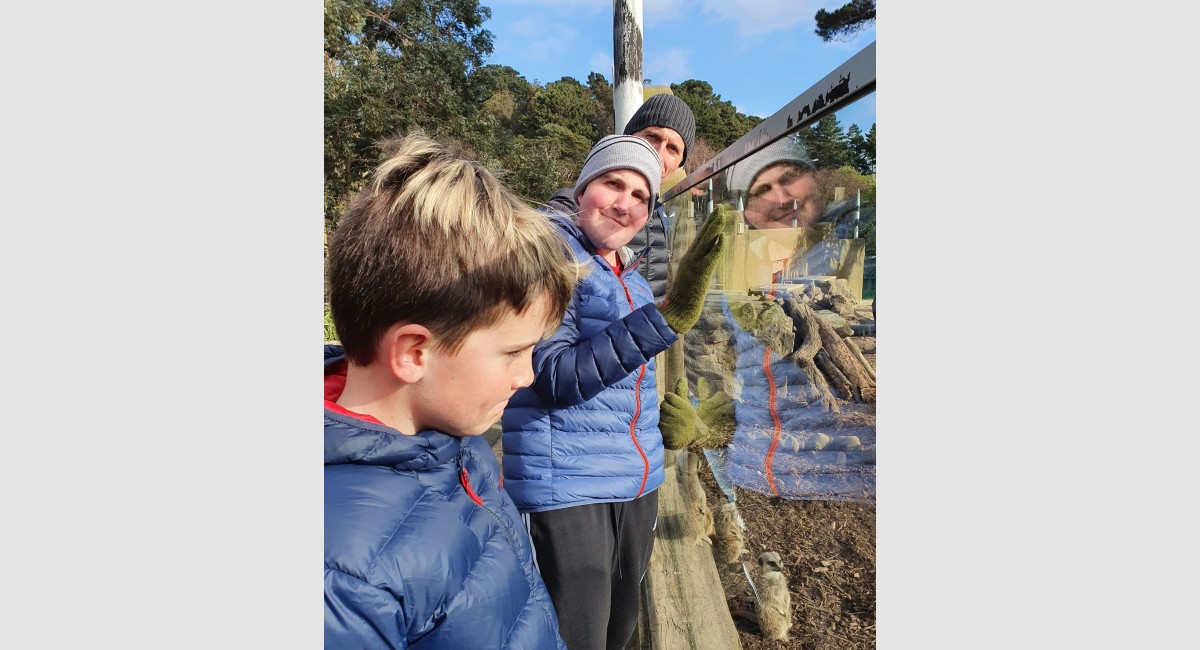Posted 4 years ago Less than a minute to read
Chicken Licken

Panic “a sudden sensation of fear, which is so strong as to dominate or prevent reason and logical thinking, replacing it with overwhelming feelings of anxiety and frantic agitation consistent with an animalistic fight-or-flight reaction”.
I am not a person who panics. When faced with a situation I usually come to grips with it quickly. My first response is ‘what can we do about it’. For the first few days after the re-emergence of Covid19 in Aotearoa I felt panic. I think it was because Covid19 poses a threat to Rory, particularly while he is still recovering and there is only so much I can do to minimise the risk. I felt unprepared and spent two stressed days rushing around getting ready for the worst. I felt like Chicken Licken in the children’s story who believed the sky was falling. We have been home seven weeks and Rory’s physical recovery is as slow as my mental and emotional recovery. We both make gains every day but things are very fragile. It doesn’t take much to knock us both back a couple of steps.
Rory is walking a little further each week with his Xtreme walker. He walked to the gym twice last week and on Saturday walked around Inglewood with Colt playing Pokemon Go. He is very slow and unsteady. It is a huge effort so he gets fatigued but at least he is moving about under his own steam. This is a win right now given the cerebellar ataxia. He is trying hard at the gym and his goal is to be as muscly as Dane so he can wrestle Sean. Rory continues to ride Dixie once a week at RDA which he enjoys and is great therapy for him.
On Sunday we made the trip to Lower Hutt for a check up of Rory’s hearing and cochlear implants (CIs) at the Southern Cochlear Implant programme (SCIP). The CIs provide the sensation of sound for Rory because he is deaf due to treatment for medulloblastoma in 2009. There are two parts to the cochlear implant system; the implant and a speech processor. The implant sits just under the skin behind the ear. The implant has an array of electrodes that are placed inside the cochlea. The speech processor converts speech and environmental sound into a digital signal and sends it across the skin to the implant. The electrodes on the implant stimulate the cochlea’s auditory (hearing) nerve fibres, and the auditory nerve carries the signal to the brain. The brain then interprets the signal as sound. The external speech processor is held in place by magnetic attraction between internal and external magnets. At SCIP they replaced the worn parts on the processor and chose a lower strength magnet to hold it in place as the skin is so thin. Rory’s ‘hearing’ was tested and the strength of each electrode was increased to give him better access to sound. A number of things can affect the functioning of the electrodes; fluid, medication, hormones. Rory has had all these and more over the last 12 months. Highlights of the trip were a visit to Wellington Zoo later in the day at feeding time and a chilly morning walk along the Hutt River.
On Friday afternoon we met with Amanda and potential new companion Natasha. Rory is going to give things a go with Natasha on a Wednesday in the absence of a male companion. Time will tell if it is a success. Yesterday Rory spent his first day with new companion Rob. Rob is a cool dude with an interesting sense of humour. After I had sent him a mountain of information in preparation for Rory I got the message “between me and Rory we should be able to keep him alive”. The two of them hit it off so the day was a success. Hopefully Rob will become a regular every second Tuesday. We also had a visit yesterday from Linda the Family Support Co-ordinator for the Taranaki branch of CCF. She checks in on how we are managing, and I share what I know in the hope it will help other families on the same journey as ours.